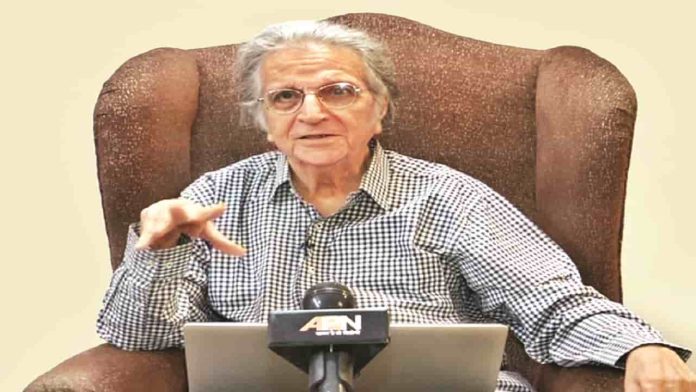Sanjay Raman Sinha: Many cases are brought to judiciary to settle political scores. Recently the supreme court had slammed DMK and AIADMK on use of state machinery to settle scores and said it poses grave danger to democracy. How challenging is the situation.
Prof Upendra Baxi: I don’t think it is a grave danger to democracy. If you look at the bare headings of supreme court cases of this type, one of the first case that of EMS Namboodiripad, then chief minister of Kerala. Then Indira Gandhi, Maneka Gandhi, hundreds of cases which politicians brought to the court against the other party or against the election commission, or even against the press, defamation case and so on. I wrote a book on supreme court and politics in 1980s which explains that there is a certain amount of socialization of the constitution. In the sense that everybody goes to the court. Also when politicians feel wronged by fellow politicians or by media or by anyone else they take recourse to Article 32 of Article 136 of the constitution and they go to court. In fact Mr Bommai went to court and there was a great judgement on the basic structure of the constitution. Indira Gandhi 39th amendment, Raj Narain went to court. There is an African saying that when elephants fight it is the grass that suffers. I want the grass that suffers. When the politicians go to court and say that their fundamental rights have been infringed I am glad because it is strengthening democracy not weakening it. They accept the discipline that the court’s word will be the final verdict. Finally it will strengthen the rule of law and constitution. I think more politicians should go to courts and not less. You cannot depoliticize courts. The court has its own politics, it has a politics of values not politics of interests. No judge benefits by the outcome, unless he is outright corrupt. Judges are relatively disinterested in the judgement they give. Politicians practise politics of interest: what is there for me. The courts practise politics of values. The courts say you are violating the constitution and we will prevent it. They develop values like rule of law, liberty, equality, fraternity. The jurisprudence of courts develop slowly, as Tagore said ‘’ The mills of gods grind very slowly but they grind finer.’’
More from the package
Chandrababu Naidu Arrest: Yet Another Scapegoat?
Opposition leaders decry TDP chief’s arrest
Supreme Court on Manish Sisodia arrest
Court rulings on cases of political vendetta
SRS: Political pressure on lower judiciary is a reality. In one research it was found that if the MLA belongs to the ruling party, they are 17% more likely to have their cases disposed of without a conviction. In contrast, cases of MLAs from opposition parties take more time to be resolved and are 15% less likely to be disposed of without conviction. . How serious is the situation , and how susceptible are lower courts judges to political pressure.
Prof Baxi: I don’t know about this study. Maybe this study is not sound in method. We have to be very careful in judging judges. Merely because the verdict favours one party over the other it doesn’t follow that there has been political manipulation. It is said associational correlation. You should establish cause and effect and not correlation. Take Ayodhya case for instance. A dispute as old as 1947. A munsif issued a stay order which continued for 50 years. He acted within the law. Well, he might be accused of supporting some ideology, but that was not probably the case, he was deciding the truth. Similarly, in the Gyanvapi case, the case has gone to different courts. So, there is no politics in stay orders. It is purely on basis of law and precedents. The media wants juicy headlines and is not interested in facts and research.


